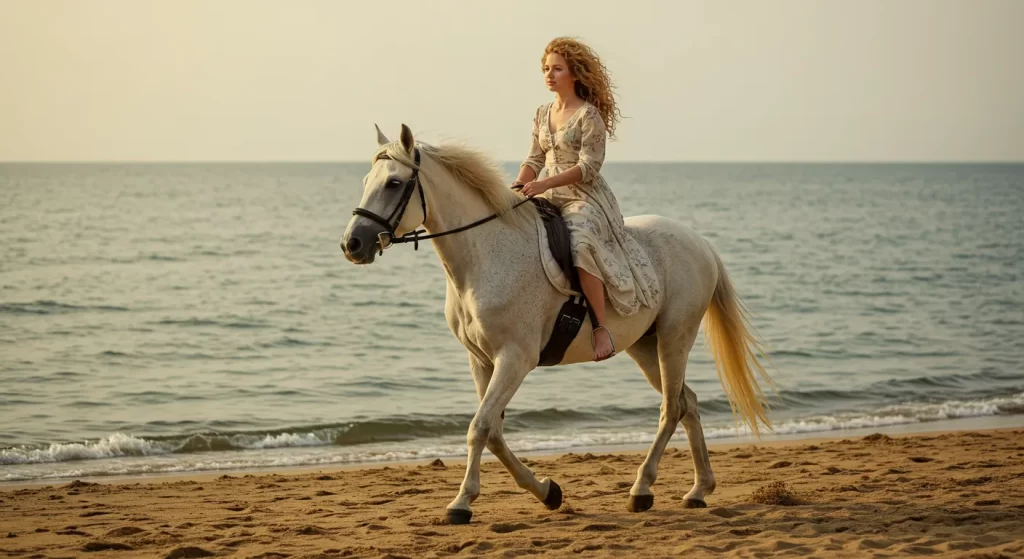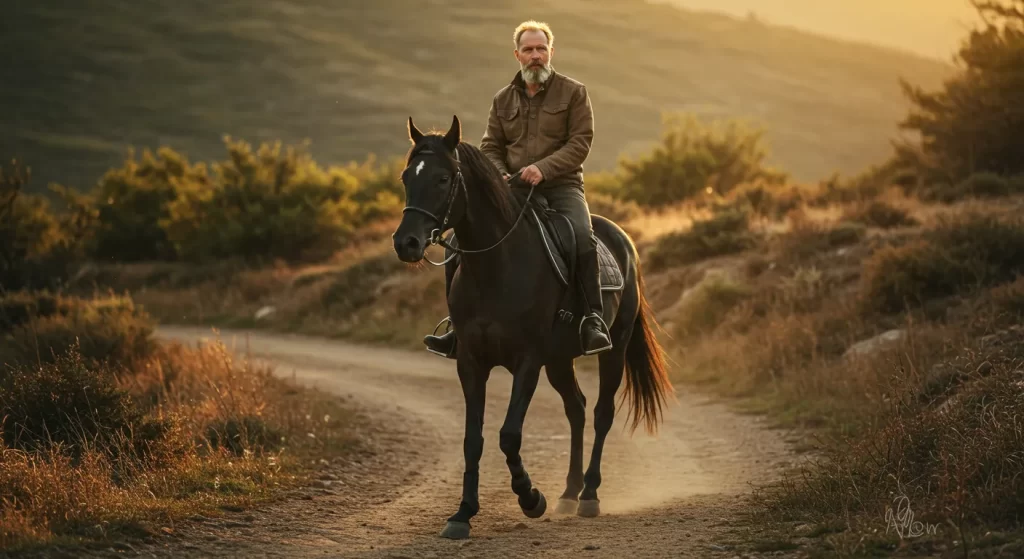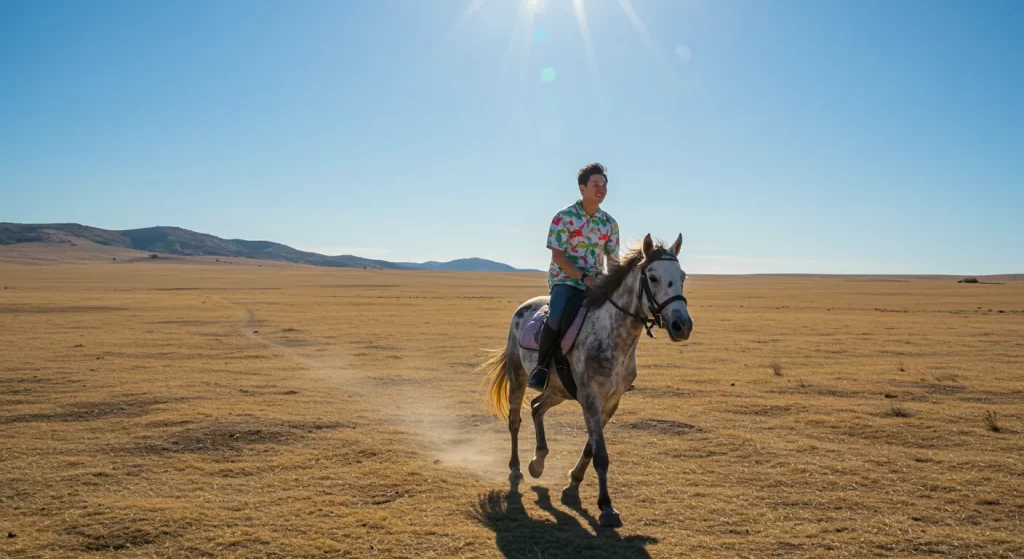Table of Contents
Can You Get a DUI While Riding a Horse?
Many people assume that, Can You Get a DUI on a Horse (Driving Under the Influence) laws only apply to cars or motor vehicles. But what if you’re riding a horse while intoxicated? Can you still be charged with a DUI? The answer is not straightforward—it depends on the state you are in and how their laws define “vehicle” or “operation.”
In this article, we’ll explore how DUI laws apply to horseback riders, share real-life cases, and explain what you need to know to avoid legal trouble.
What Is a DUI and How Does It Apply to Horses?
A DUI, or Driving Under the Influence, typically refers to operating a motor vehicle while impaired by alcohol or drugs. However, many states have laws that extend DUI rules beyond motor vehicles to include other vehicles or conveyances. This means that in some places, riding a horse while intoxicated could potentially lead to a DUI charge.
The key question is: does the law consider a horse a “vehicle” or “conveyance”? This varies by jurisdiction. Some states specifically mention motor vehicles in their DUI statutes, while others use broader language that might include horses, bicycles, or even animal-drawn carriages.
The Foundations of DUI Laws
To make sense of how horses fit into DUI laws, it’s important to first understand what a DUI actually is. In most U.S. states, a DUI refers to operating a motor vehicle while under the influence of drugs or alcohol.
That typically involves a blood alcohol content (BAC) of 0.08% or higher. But it isn’t always about the BAC alone—if your ability to safely control a vehicle is impaired, you could still face charges even if your BAC is below the legal limit.
Why the Definition of ‘Vehicle’ Matters

The core of the issue lies in one tricky question: Is a horse a vehicle? DUI laws generally apply to self-propelled machines—cars, trucks, motorcycles. Since horses aren’t machines and certainly not self-propelled in the way the law usually describes, they don’t easily fall into the same category.
However, that doesn’t mean you’re in the clear. Depending on where you are, local or state laws might define “vehicle” broadly enough to include a horse, especially if public safety is at stake.
State-by-State Differences: How DUI Laws Apply to Horses
DUI laws are primarily state laws, so the answer depends heavily on where you are. Here are examples from a few states:
- California: DUI laws apply only to motor vehicles. Since horses are not motorized, riding a horse while intoxicated generally does not qualify as a DUI. However, reckless behavior while riding could lead to other charges.
- Kentucky: The law includes any vehicle or conveyance, which means riding a horse while intoxicated could result in a DUI charge.
- Pennsylvania: There have been cases where individuals were charged with DUI while riding horses, as state law can be interpreted to include horses under “vehicles.”
Because laws differ so much, it’s vital to check your local statutes or consult a legal expert if you’re unsure.
How States Like Washington Interpret the Law
Take Washington State, for example. While its DUI laws are written with motor vehicles in mind, courts and law enforcement have some wiggle room. If someone riding a horse while intoxicated puts others at risk, they may face charges like reckless endangerment or public intoxication. Even if the horse doesn’t legally count as a vehicle, the rider’s impaired behavior can still be a problem.
Also Read: Discovering the Timeless Beauty of Ancient Artz
Criminal Charges Beyond DUI
Let’s say you’re riding a horse after a few too many drinks. Even if you’re not charged with a traditional DUI, you could still be breaking the law. Riders in this situation may be charged with public drunkenness, disturbing the peace, or even animal cruelty if their condition causes the horse harm. In some cases, civil penalties like fines or lawsuits could also come into play if an accident occurs.
Real Cases That Set the Tone
Real-Life Examples: People Charged with DUI on a Horse
While it might sound unusual, there have been documented cases of people charged with DUI while riding horses:
- In 2017, a man in Florida was arrested for DUI after riding his horse on a public road while intoxicated. Authorities treated the horse as a vehicle under local laws.
- In Pennsylvania, several cases have made headlines where horseback riders faced DUI charges due to state laws that broadly define vehicles.
These examples show that even if it seems unlikely, riding a horse while intoxicated can have serious legal consequences depending on your location.
While not incredibly common, there have been real cases of people getting into legal trouble for drunk horseback riding. In Kentucky, one man was charged with DUI after riding his horse erratically down a public road. In other states, riders have faced lesser—but still serious—charges. These cases show that the law isn’t always black and white and that courts often consider the potential danger rather than just the letter of the statute.
The Hidden Dangers of Riding While Intoxicated

Alcohol dulls the senses, slows your reaction time, and messes with your coordination. That’s a deadly combination when you’re riding a 1,000-pound animal that relies on your clear communication. Riders under the influence risk falling, injuring themselves, or worse—hurting or confusing their horses, which can panic and cause accidents.
Why Horses Deserve Sober Riders
A horse is not just a mode of transportation; it’s a living creature that depends on its rider for direction and safety. When a rider is intoxicated, the horse can be put in dangerous situations—like darting into traffic or reacting unpredictably to stimuli. It’s not just the rider who faces the consequences; horses can suffer physical injuries, emotional stress, or even death from accidents caused by impaired handlers.
Also Read: Understanding What Does Waive Extradition Mean?
Public Safety Concerns and Liability
Beyond personal safety, there’s also a public safety element. Imagine an intoxicated rider losing control of their horse near a busy road or crowded park. That creates a hazard not only for the rider and the horse but also for drivers, pedestrians, and other animals. If someone gets hurt or property is damaged, the rider could be held financially or criminally liable.
Challenges for Law Enforcement

One of the toughest parts of enforcing laws around drunk horseback riding is the lack of specific regulations. In most areas, police must decide how to handle the situation based on existing laws that weren’t necessarily written with horses in mind. Officers may rely on their own judgment, field sobriety tests, or statements from witnesses to build a case. This makes enforcement inconsistent and sometimes controversial.
Avoiding Trouble: Tips for Safe Horseback Riding
The easiest way to avoid any legal issues or accidents? Don’t drink and ride. If you’re planning to attend an event where alcohol will be served, assign a sober rider ahead of time. If no one’s available, skip the ride and enjoy your drink responsibly from the ground. Riders should also educate themselves about local laws and best practices to keep both themselves and their horses safe.
How the Equestrian Community Can Promote Change
Horse lovers can play a big role in preventing drunk riding incidents. Hosting awareness events, sharing resources on social media, and including safety tips in riding clubs and stables can go a long way. Partnering with law enforcement and animal welfare organizations to spread the message helps create a culture of responsibility and care.
Stay Safe and Know Your Local Laws
Whether you can get a DUI on a horse depends largely on your state’s laws. While many states limit DUI laws to motor vehicles, others have broader definitions that include horses and other non-motorized conveyances.
Always check your local regulations and remember that riding any animal or vehicle while impaired is dangerous and can lead to serious legal trouble. When in doubt, avoid riding under the influence and stay safe.
FAQs
Can You Get a DUI on a Bicycle?
Yes, in many states, bicycles are considered vehicles under DUI laws. Riding a bicycle while intoxicated can lead to DUI charges similar to those for motor vehicles.
What About Other Animals or Animal-Drawn Vehicles?
Some states include animal-drawn vehicles, such as carriages or wagons, under DUI laws. It’s important to understand your local laws to know what is covered.
What Happens If You’re Charged with a DUI on a Horse?
Consequences vary but can include fines, license suspension, or even jail time. Additionally, you might face charges related to reckless endangerment or public intoxication.






